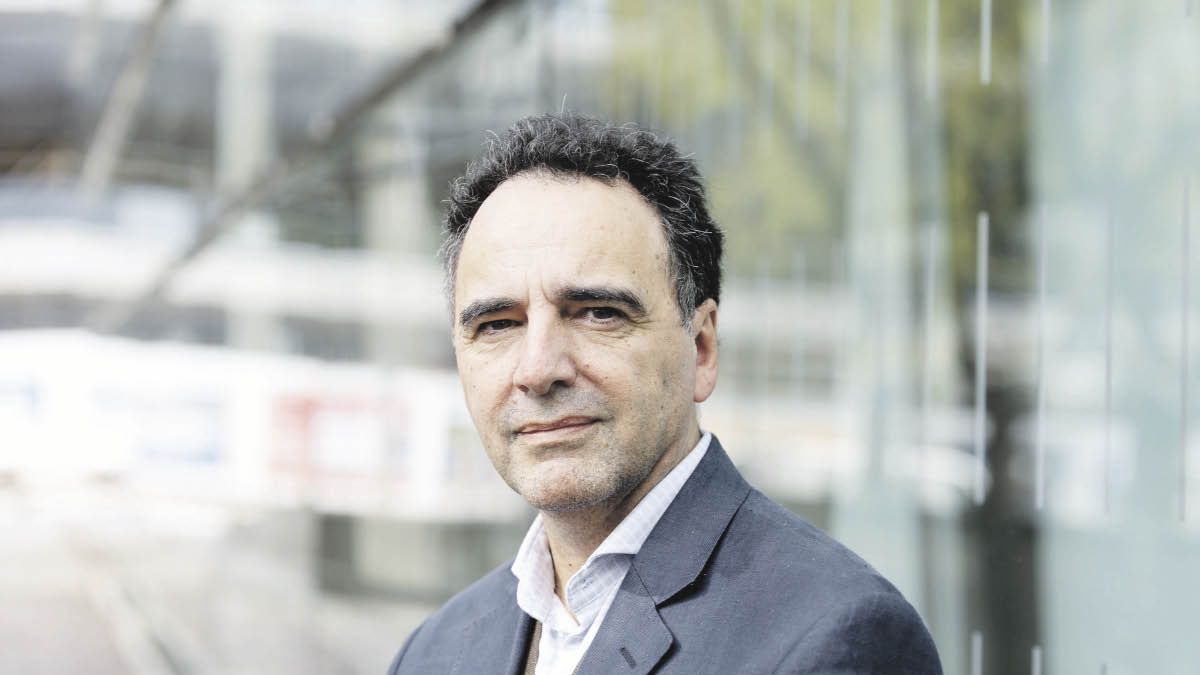Pablo De Santis: And of literature for boys. One does not know why they choose it but I would like to think about it because of that, I would love to represent the comic at the Academy. When the Academy awarded my novel “The Enigma of Paris” I met that institution for the first time, I was fascinated with the building, with the photos of the former academics, with some memories that are out there, autographed texts, by the Jorge Luis Borges library , old and with a collection of incredible books.
P .: In your new novel you go from the Academy of Letters to an academy of assassins.
P. De S.: There are no big differences. Now, for the 90 years of the Academy, a book is being published in which we academics collaborate with different types of work. In my case, together with another from journalism, without agreeing, we wrote police stories. Mine is the story of a 1972 murder at the Academy. I especially used the library for a police plot.
Q .: Is there a link between “Belladonna Academy” and “The Enigma of Paris”?
P. De S.: A small link, one of the detectives reappears in a marginal place. Many years passed between what one novel tells about and another. The first takes place in 1889, this one in 1932, they are more than 40 years old. The English of “The enigma of Paris” appears much older with a place in the academy of this book, which does not tell the story of the detectives but the other side, that of the murderers. I tend in my novels to this kind of societies. In one they are architects; in another, calligraphers; in another, detectives; in this one, killers. Not quite bad as it will turn out, but they are there to kill, each for their own reason. Especially the protagonist who has to solve a question from his past. I think I had some influence from the “Avengers” series, the one with John Steed and Emma Peel. “Academia Belladona” is a fantasy about the detective novel. It’s more of a genre novel than a genre novel because it’s not a traditional policeman. It seeks to build an autonomous world far from reality and in a poetic key in some cases.
Q .: Like the protocol for assassins that you offer in a chapter.
P. De S.: That manual, a bit poetic, that Elizabeth Trent gives to the protagonist. There are external texts: obituaries, pages from a philately manual, lessons from Mrs. Trent, which accompany the main story and decorate the building of the novel. Sometimes the obituaries are an anticipation or a revelation to the reader of something that has already happened and accompany the changes in the protagonist. Those changes are inevitable in the novels. The story, so much shorter than the novel, shows a world that changes, while in the novel, more than a world that changes, it shows a character that changes. The novel is the territory of the characters, the world must be seen through the characters. The stories close with a slam of the door, the novels with a farewell that stays on the threshold and tends to continue waving.
Q .: Using philately for its financial nature, is it a tribute to “Nine Queens”?
P. De S.: I really got into the novel when I discovered that the stamps offered murderers to have their own economy, one on the fringes of the general economy. After my father died I got my old stamp albums back. Looking at it, I realized that many countries had disappeared, those of Eastern Europe, those that changed their name, those of Africa. With Bielinsky, director of the admirable “Nine Queens”, I worked on the script for “El aura”, his latest film, and with Fernando Spiner on the miniseries “Bajamar”.
Q .: Too many writers have died in recent years.
P. De S.: Piglia, Rivera, Abelardo Castillo, Laiseca, Saer and Fogwill long before, it was a kind of catastrophe for Argentine literature. Things about them have continued to be published and that gives them validity. There is a certain orphan in that sense, but there is a great movement, new publishers, people who publish. Last year I had a pessimistic vision, that everything was collapsing, but this year I see more publications, new bookstores, editorials, despite the crisis. When the pandemic eased a bit, everything came back to life a bit.
Q .: What are you up to now?
P. De S.: We are with Fernando Spiner in the script of a film based on my novel “The Translation”, which came out more than twenty years ago and was a finalist for the Planeta Prize. With Spiner we worked many times after “Bajamar”. I helped him in his documentary “La buya”. Now his film “Immortal” is going to be released, where I also worked on the script.
Source From: Ambito
David William is a talented author who has made a name for himself in the world of writing. He is a professional author who writes on a wide range of topics, from general interest to opinion news. David is currently working as a writer at 24 hours worlds where he brings his unique perspective and in-depth research to his articles, making them both informative and engaging.




